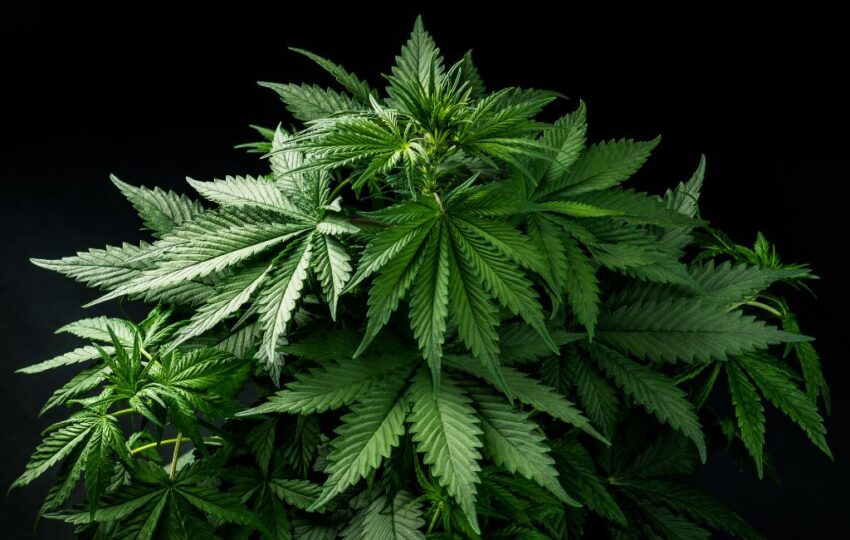Granddaddy Purple, often abbreviated as GDP, is a renowned cannabis strain celebrated for its distinct purple hue and potent effects. As the cannabis industry evolves, the focus has shifted towards understanding the benefits of its various compounds, including THCA (tetrahydrocannabinolic acid). This article explores the journey of Granddaddy Purple thca benefits, providing insights into its therapeutic applications and impact on health and wellness.
Understanding THCA: The Non-Psychoactive Precursor
THCA is a non-psychoactive cannabinoid found in raw and live cannabis plants. Unlike THC, which is known for its psychoactive effects, THCA does not produce a high. This compound is the acidic precursor to THC and converts to THC through a process called decarboxylation, which occurs when cannabis is heated.
Research into THCA is still in its early stages, but preliminary studies suggest it may offer a range of health benefits. These include anti-inflammatory, neuroprotective, and anti-emetic properties. As interest in cannabis-based therapies grows, understanding THCA‘s potential becomes increasingly important.
Potential Health Benefits of THCA
- Anti-Inflammatory Properties: THCA has shown promise in reducing inflammation, which could be beneficial for conditions such as arthritis and lupus.
- Neuroprotective Effects: Early research indicates that THCA may help protect brain cells, potentially offering therapeutic benefits for neurodegenerative diseases like Alzheimer’s and Parkinson’s.
- Anti-Emetic Benefits: THCA may help reduce nausea and vomiting, making it a potential option for patients undergoing chemotherapy or those with chronic gastrointestinal issues.
The Allure of Granddaddy Purple
Granddaddy Purple is a hybrid strain that combines the genetics of Purple Urkle and Big Bud. Known for its deep purple color and sweet, grape-like aroma, GDP has become a favorite among cannabis enthusiasts. Its effects are typically described as relaxing and euphoric, making it popular for stress relief and pain management.
The strain’s unique profile has made it a subject of interest for those exploring the benefits of THCA. As more consumers seek non-psychoactive options, Granddaddy Purple’s THCA content offers a potential avenue for therapeutic use without the high associated with THC.
Case Studies and Research
Several studies have begun to explore the potential benefits of THCA, though more research is needed to fully understand its effects. A study published in the British Journal of Pharmacology highlighted THCA’s anti-inflammatory properties, suggesting it could be a valuable addition to treatments for inflammatory conditions.
Another study conducted by the University of Guelph found that THCA exhibited neuroprotective effects in animal models, indicating potential for use in neurodegenerative disease therapies. These findings underscore the need for further research to confirm and expand upon these initial results.
Incorporating THCA into Wellness Routines
For those interested in exploring the benefits of THCA, there are several ways to incorporate it into a wellness routine. Consuming raw cannabis leaves or using tinctures and oils that preserve THCA content are popular methods. These options allow users to experience the potential benefits without the psychoactive effects of THC.
It’s important for consumers to source products from reputable suppliers to ensure quality and consistency. As the market for cannabis-based products grows, so does the availability of THCA-rich options, making it easier for individuals to find products that suit their needs.
Consumer Considerations
- Product Quality: Choose products from trusted brands that provide lab-tested results to verify THCA content.
- Consumption Method: Consider how you prefer to consume cannabis, whether through raw leaves, tinctures, or oils.
- Personal Health Goals: Align your use of THCA with specific health objectives, such as reducing inflammation or managing nausea.
Conclusion
The exploration of Granddaddy Purple and its THCA content offers a glimpse into the potential benefits of this non-psychoactive cannabinoid. As research continues to unfold, THCA may emerge as a valuable component in the landscape of cannabis-based therapies. Whether for its anti-inflammatory, neuroprotective, or anti-emetic properties, THCA presents an intriguing option for those seeking alternative wellness solutions. As the understanding of cannabis compounds deepens, the journey of Granddaddy Purple and THCA is poised to make a significant impact on health and wellness.

